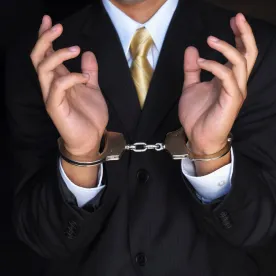The UK Serious Fraud Office (SFO) launched 30 property raids to gather evidence for its ongoing criminal investigations (i.e. before prosecution takes place) in the previous 12 months year ending March 31. The number is more than triple the number of the same raids undertaken the year before and more than at any time in the preceding five years.
However, raids carried out by the SFO’s Proceeds of Crime Division fell to zero over the same period. Why?
Barry Vitou, shareholder of Greenberg Traurig and head of White Collar Defence and Special Investigations London, provides a theory: “The SFO is adopting an increasingly aggressive stance in its investigation and pursuit of white collar crime and the over tripling of the number of searches undertaken in connection with its active investigations before prosecution confirms that.”
This follows in the wake of increasing enforcement activity and investigations into large corporations and Deferred Prosecution Agreements including penalties and disgorgement running into hundreds of millions of pounds.
“In contrast, the UK Serious Fraud Office (SFO) Proceeds of Crime division, which investigates the recovery of the proceeds of crime so that fraudsters do not benefit from their offending and victims can be compensated wherever possible, did not undertake any searches,” Vitou said.
“It is important that the increasingly hard line taken investigating fraud before prosecution does not come at the cost of recovering the proceeds of crime from white collar criminals,” Vitou said.
SFO statistics show that in the 12 months year ending March 31 (the same year the Proceeds of Crime Division conducted no searches) it obtained Proceeds of Crime orders amounting to £275,000 (c 1% of proceeds of crime orders in the prior year) and .1% of the disgorgement in the biggest DPA to date.
“The lack of raids related to Proceeds of Crime investigations and associated low number of Proceeds of Crime orders in the same year is at odds with public pressure to ensure that white collar criminals are not able to keep hold of assets gained through fraud.”
Vitou warns, “It is hoped this is a blip. However, the statistics could represent a focus on investigating companies. Corporations often reach agreement and pay their fines and disgorgement, in contrast to individual wrongdoers who may be more likely to hide away ill-gotten gains and require the SFO to use its search powers in respect of them.”
Vitou, who authors thebriberyact.com blog, further notes that “telephone number penalties, Deferred Prosecution Agreements and aggressive investigation and enforcement tactics against companies are all taken from the US criminal law enforcement playbook”
“The US has been criticised for its focus on corporations. It is important that the SFO does not fall into the same trap, and simply target corporations as a cash cow for the UK government, at the expense of pursuing individual wrongdoers and recovering their ill-gotten gains,” Vitou said.
“The appointment of a former US prosecutor to head the SFO is entirely consistent with the new US-style approach to white collar crime enforcement in the UK. The increased number of raids for investigations is likely to continue but should not be at the cost of investigating and recovering ill-gotten gains from white collar criminals.”


 />i
/>i

